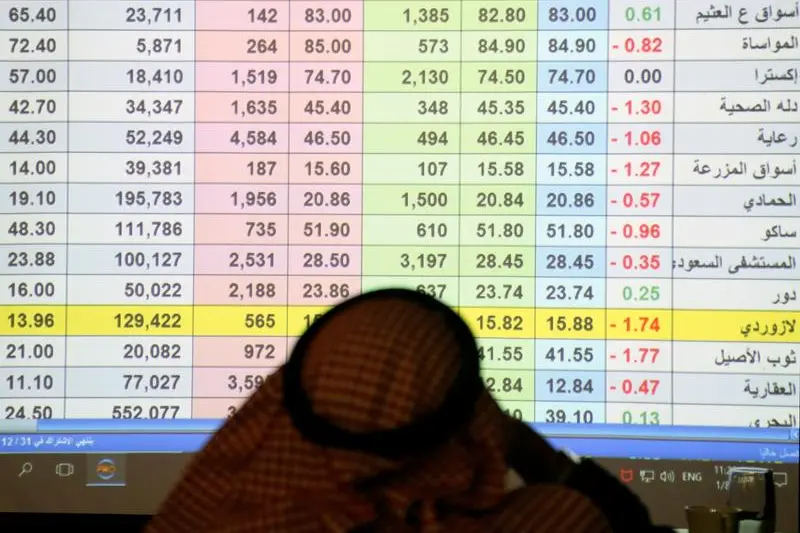PHOTO
Stock markets in the Middle East ended lower on Sunday amid tensions in the region following the assassination of Hamas leader Ismail Haniyeh, a day after an Israeli strike in Beirut killed a top military commander from Lebanese armed group Hezbollah.
A high-level Israeli delegation arrived in Cairo on Saturday for an attempt to resume Gaza ceasefire negotiations, but returned home later in the day, the Egyptian airport authority and Israeli media said.
Saudi Arabia's benchmark index <.TASI> slid 2.4%, dragged down by a 10% plunge in aluminium products manufacturer Al Taiseer Group <4143.SE> and a 2.7% drop in Al Rajhi Bank <1120.SE>.
Among other losers, oil giant Saudi Aramco <2222.SE> was down 1.3%.
Hezbollah forces on Friday resumed rocket and artillery attacks against Israel, ending a lull along the border following Israel's killing of the Lebanese group's military commander in Beirut.
The Qatari benchmark <.QSI> lost 0.7%, with petrochemicals maker Industries Qatar <IQCD.QA> falling 0.7%.
Outside the Gulf, Egypt's blue-chip index <.EGX30> declined 2.9%, with all the constituents of the index in negative territory including E-Finance for Digital and Financial Investment <EFIH.CA>, which was down 8%.
Separately, Egypt's net foreign assets (NFAs) stayed positive for a second straight month in June having been deeply negative for more than two years, central bank data showed.
| SAUDI ARABIA | <.TASI> fell 2.4% to 11,754 |
| QATAR | <.QSI> dropped 0.7% to 10,057 |
| EGYPT | <.EGX30> lost 2.9% to 28,504 |
| BAHRAIN | <.BAX> retreated 1% to 1,951 |
| OMAN | <.MSX30> eased 0.4% to 4,647 |
| KUWAIT | <.BKP> declined 2.2% to 7,695 |
(Reporting by Ateeq Shariff in Bengaluru; Editing by David Holmes)




















